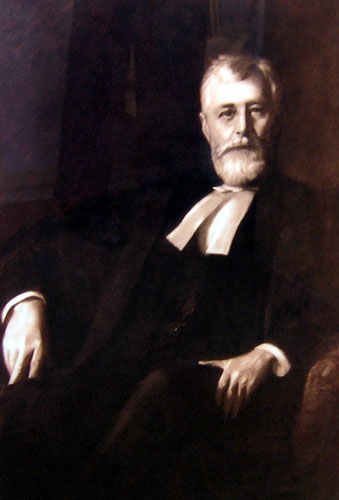
William Meredith is the founding father of the Workers' Compensation System in Ontario, Canada. As the industrial revolution created crowded factories and unsafe working conditions, injured workers and their families had few choices when it came to receiving benefits or compensation for their injuries.
The Government of Ontario realized that changes to the compensation laws were essential, and in 1910, Ontario Premier Sir James Whitney appointed Meredith to head the first royal commission to study Workers' Compensation systems throughout the world and to make recommendations. In his royal commission report, Meredith said that the true aim of compensation law is to provide for the workman and his dependents and prevent their becoming a charge upon their relatives or friends, or the community at large. He identified five basic tenets of a compassionate compensation system, the most important of which was the idea of "no-fault insurance". This meant that workers would give up their right to sue their employers in exchange for guaranteed no-fault income security in the event of a workplace injury. And employers would pay for the system in return for protection against liability.
In 1913, Meredith presented his recommendations and his draft legislation came into effect the following year. The impact of Meredith's new system was felt throughout Canada and the U.S. Thus, his five principle ideas (no-fault compensation, security of benefits, collective liability, exclusive jurisdiction and administration by independent boards) became known as "the Meredith Principles."
